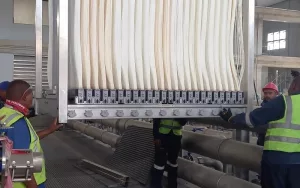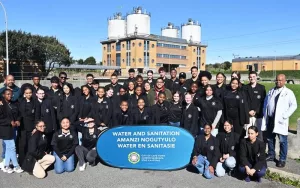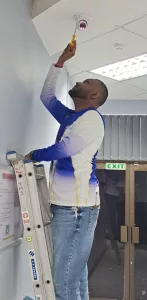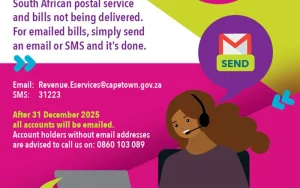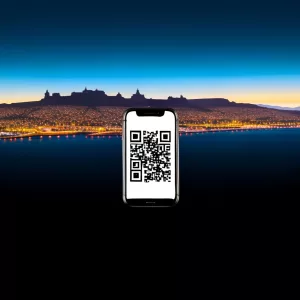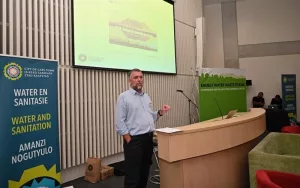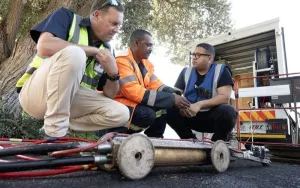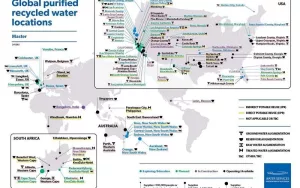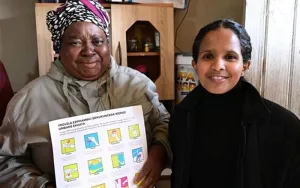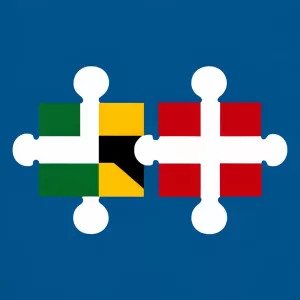Starlink’s arrival in South Africa could bring fast, affordable internet to remote places where connectivity is weak or missing. But South Africa’s Black Economic Empowerment (BEE) policy, which demands local ownership to fix past inequalities, makes this a tricky challenge. New ideas like “equity equivalents” might help balance fairness with the need for investment, opening the door for Starlink to connect many underserved communities. This moment is about more than technology it’s a chance for South Africa to embrace the future while honoring its history. If successful, millions could finally join the digital world and its opportunities.
Cape Town’s Zandvliet Wastewater Treatment Works has undergone a major upgrade, transforming it into a powerhouse of wastewater management. Now, it can handle an impressive 90 million liters of wastewater every day, while also meeting national standards 90% of the time, up from just 50%. This upgrade introduces advanced technology to improve water quality and supports the city’s goal of creating a reliable water supply. With a vision for the future, Zandvliet is set to play a key role in ensuring Cape Town thrives sustainably, even amid climate challenges.
Cape Town keeps its streets bright and safe at night by fixing and protecting over 245,000 streetlights. The city fights theft and vandalism by using less valuable materials and burying cables underground, while also encouraging the community to help watch over their power. Every glowing lamp turns the night into a welcoming place where people feel secure and connected, showing how teamwork between workers and residents can light up the city’s future.
Cape Town is preparing its youth to tackle big water challenges through the Junior City Council program, where students get handson learning at water treatment plants. They explore how water is cleaned, recycled, and turned from seawater into fresh water, gaining valuable knowledge about sustainability. Guided by city leaders, these young learners discover how innovation and teamwork help protect the city’s water supply for the future. Inspired and empowered, they leave ready to make a difference in their communities and beyond.
Reshanthan Moodley has boldly transformed the South African Police Service by bringing in smart digital tools like facial recognition cameras and advanced crime management systems. Starting from helping officers with tech problems, he rose to lead big projects that blend cuttingedge technology with strong ethics and community care. Always learning and teaching, Resh shows how using new tools thoughtfully can make police work smarter, safer, and more trusted by the people. His story proves that one person’s passion and perseverance can drive real change in even the oldest institutions.
Cape Town is changing how people get their city bills by sending them through email instead of paper mail. This new eBilling system is faster, easier, and better for the environment because it cuts down on paper and delivery problems. Many residents, like Marlene, find it simple and helpful once they get used to it. The city also makes sure everyone can join in, offering support for those who need help with digital tools. This switch shows Cape Town’s promise to be modern, green, and fair for all its people.
Cape Town is boldly changing how it manages water to keep the city safe and healthy for the future. The city is upgrading old pipes, building new water treatment plants, and tapping underground water sources to make sure everyone has clean water. Big investments and smart technology help Cape Town bounce back from droughts and grow stronger every day. This work shines as a powerful example of how a city can protect its water and people with care and vision.
Cape Town is making a big change by moving all city bills from paper to digital by January 2026. Instead of waiting for paper bills in the mail, residents will get their bills by email, making payments faster and easier with QR codes. This new system helps save trees, cuts costs, and is designed to include everyone, even those without easy internet access. It’s a smart step that blends the city’s rich history with modern technology to create a cleaner, simpler way to live. Cape Town is showing the world how cities can grow while caring for people and the planet.
Cape Town is on a mission to secure its water future with an exciting new plan called the New Water Programme. This big idea includes using seawater and recycling wastewater to boost the city’s water supply by 300 million liters every day by 2030. City leaders are working hard to involve the community and use the latest technologies, like advanced desalination, to make sure everyone’s needs are met. Cape Town’s efforts show how cities can adapt and thrive, setting an inspiring example for the world in the face of climate change.
Cape Town’s Underground Transformation: Reimagining Sewer Infrastructure for a Thriving City
In 2025, Cape Town transformed its sewer system by replacing over 117 kilometers of old pipes, beating their goal by 17%. Using smart technology and careful planning, the city made the sewer network stronger, safer, and more reliable for everyone. This upgrade helps prevent messy pipe bursts, protects public health, and supports growing neighborhoods, especially those long overlooked. Beneath the busy streets, a quiet revolution is happening one that promises a cleaner, healthier, and more vibrant Cape Town for years to come.
South Africa is moving from its old green barcoded ID book to a new smart ID card that looks like a bank card and uses tiny microchips and fingerprints to keep people’s identities safe. The old green book was easy to fake and linked to a hard past, while the smart card helps stop fraud and makes it quicker to access services like voting and banking. Many communities are helping each other through the change, making sure everyone can get their new ID smoothly. This new card is a big step toward a safer, fairer, and more connected South Africa.
Cape Town is shining bright as a leader in clever water management! With projects like the Atlantis Water Resource Management Scheme and the Cape Flats Managed Aquifer Recharge, the city is finding smart ways to provide millions of liters of clean water every day. These efforts help Cape Town tackle challenges like climate change and a growing population while keeping water sources healthy and sustainable. By working hard and planning for the future, Cape Town inspires other cities to do the same, ensuring that everyone has enough water to thrive.
Electricity has brought a bright new life to the Greenfields informal settlement. Where once only flickering candles lit the night, now safe, steady lights fill homes, helping children study and families live with less fear. This change has made daily life easier and safer, opening doors to hope and growth. Greenfields is now a shining example of how power can spark not just light, but dignity and dreams for a better future.
Cape Town has launched a smart new system that tracks all its city vehicles in real time using hightech gadgets. This helps the city keep an eye on where trucks and buses go, how much fuel they use, and when they need repairs. By doing this, Cape Town makes sure services run smoothly, stops waste and theft, and protects the environment. It’s a big step toward a safer, cleaner, and more open city where technology helps everyone work better together.
The South AfricanTunisian collaboration has been a bright example of how teamwork in science can empower women. By sharing research, offering mentorship, and providing funding, both countries support women to thrive in science and lead innovation. Tunisia’s strong focus on gender equality inspires South Africa, while South Africa’s programs help women break barriers in STEM. Together, they show how science and friendship can open doors for women, creating fairer, smarter futures for everyone.
Starting September 1, 2024, South Africa’s SASSA will ask everyone applying for social grants to register their fingerprints and face images. This new biometric system helps stop fraud and makes sure only the right people get support like pensions and child grants. Though some worry about longer lines and new steps, many see it as a way to protect their identity and keep the system fair. This big change shows how technology is helping SASSA build a safer, stronger future for social help.


